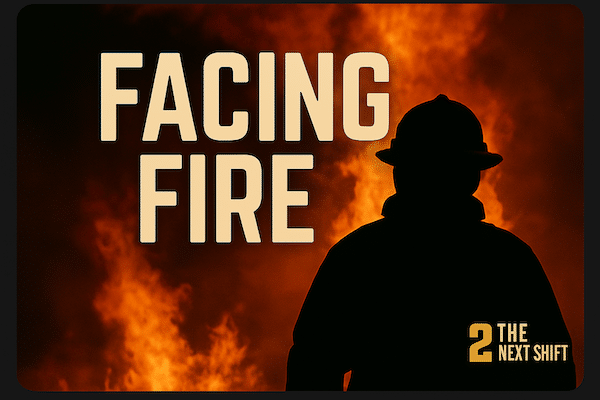Facing Fire, Blood, and Brokenness: What No One Prepares You For

There are things they don’t tell you in the academy.
They teach you how to run drills, manage trauma, and read the scene. But they don’t prepare you for the weight that lives behind those doors of the real world. The stuff that doesn’t wash off with the uniform. The sounds, the smells, the sights that stay with you long after the sirens go quiet.
Every first responder, if they’ve been in this work long enough, has a memory that still shows up at 2 a.m. A face they can’t forget. A scene that changed something in them.
This career isn’t just hard on your body. It’s brutal on your spirit if you don’t know how to process what you’re walking through. Guard your eyes!
The Scenes That Stick.
Let’s talk real.
You’ll see blood. Not just from accidents, but from violence. From abuse. From the kind of pain that doesn’t make the news.
You’ll see fire and bullets do things that don’t make sense. Melt metal. Swallow lives. Turn everything familiar into ash and create holes like swiss cheese.
You’ll arrive at scenes where children are involved and nothing, I mean nothing, prepares you for that.
And you won’t just witness trauma. You’ll feel it. Carry it. Sometimes question if you did enough. If you could’ve changed the outcome.
This is the cost of the calling.
Numbness Isn’t Strength.
Some people respond by shutting down. “It’s just part of the job,” they say. “Can’t let it get to you.”
But here’s the truth: feeling nothing doesn’t mean you’re strong. It means you’re disconnected.
You can’t pour from an empty cup and you can’t serve people well if you’ve gone cold inside.
Strength isn’t about pretending. It’s about processing. Feeling the weight without letting it crush you.
Grief in Gear.
Sometimes grief hits on the job. Sometimes it sneaks in later during a quiet ride back to the station or while folding laundry at home.
You might cry. You might lash out. You might feel nothing at all and wonder what’s wrong with you.
There’s nothing wrong with you.
You’re human.
And the fact that you feel it means your heart is still beating in the right direction.
What Help Really Looks Like.
I’m not just talking about therapy. Yes, that can help tremendously. I’m also talking about having real conversations with teammates, with mentors, with people who’ve seen what you’ve seen.
Help can look like:
- A walk after shift instead of driving home in silence
- A trusted friend who doesn’t ask questions, just listens
- A quiet journal entry that gets the thoughts out of your head
- A peer support group who gets the job, and gets you
You don’t need to talk about every detail. But you do need to know you’re not alone in it.
Your Mind Is Part of the Gear.
You check your SCBA. You inspect your service weapon. You make sure your boots are good to go. You get your teeth cleaned and a physical, right?
Treat your mind the same way. Having a therapist on deck, from day one, is a good thing.
Make a habit of checking in. What’s weighing on you? What are you carrying? Is there something you need to unload before it buries itself too deep?
Mental readiness is just as critical as physical readiness. Don’t wait until something breaks before you tune in.
Final Word: Honor the Hurt.
You don’t need to be a hero.
You need to be whole.
That means honoring the impact this work has on you, not just pushing through it. The brokenness you witness doesn’t make you weak. It means you showed up when it mattered most.
So take care of yourself. Not just for your own sake but for the people you’re called to serve. “It makes no sense to save the trainwrecks of the world but be a train wreck in your own home!”
Up Next: “First on Scene, Last to Heal: Why Burnout Is a Real Threat”
We’ll talk about spotting burnout early, protecting your energy, and building habits that help you stay in this for the long haul.

great stuff coach!